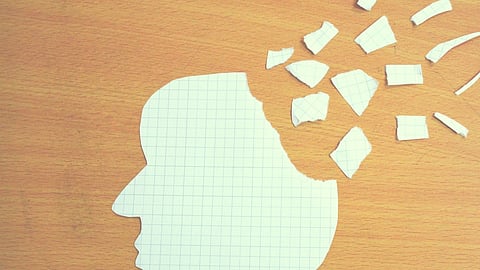
- Mental health mattersMental health matters
- Mental IllnessMental Illness
- Life stagesLife stages
- Caregiving
- Workplace Mental Health
- Legal Matters
- Subscribe

What is a mental illness?
Mental illness refers to health conditions that affect a person emotionally, psychologically, and behaviourally. Like in the case of a physical illness, this too requires treatment. They are caused due to a combination of biological (like genetic predisposition), psychological (trauma, for instance), and social factors (such as discrimination).
The two widely established systems of mental illnesses classification are:
ICD-10: Chapter V of the International Classification of Diseases by World Health Organization (WHO)
DSM-5: The Diagnostic and Statistical Manual of Mental Disorders by the American Psychiatric Association
More than 250 psychiatric disorders have been identified and named in these manuals.
What are the different types of mental illnesses?
Mental illnesses can be divided into seven different categories. They are:
Mood disorders
A disturbance of mood that is prolonged and severe in nature, causing a significant amount of distress in the individual's life. Examples of mood disorders include depression, bipolar disorder amongst others.
A category of disorders where anxiety (excessive worrying, irrational thoughts, apprehension) is the main characteristic feature. It can be in response to a specific trigger (such as having a phobia), but this need not necessarily be the case always. An anxiety disorder can manifest in the form of a heightened state of worry, tension and excessive apprehension caused without any apparent reason. These symptoms can significantly affect a person’s daily functioning.
A personality is the way an individual thinks, feels and behaves that makes them different from someone else. An individual’s personality is influenced by several factors—their experiences; environment (including their childhood and life circumstances), and inherited characteristics. The personality typically stays the same throughout their life.
A personality disorder is when an individual has unhealthy patterns of thoughts and emotions that impact their behavior and make it difficult for them to function.
Psychotic disorders
Psychotic disorders (such as schizophrenia) refer to illnesses where there is an onset of psychotic symptoms that may include delusions, hallucinations, disorganized speech or behavior, or being in a catatonic (motionless or sitting still for long hours) state. This can be a condition that lasts for a few days, or one that needs to be managed on a long-term basis like in case of a chronic physical illness.
An unhealthy pattern of eating that can cause harm to the physical or emotional health of the individual. The most common examples include anorexia (anorexia nervosa), bulimia (bulimia nervosa), and binge-eating disorder (BED).
Trauma-related disorders
Trauma refers to an intense emotional response caused due to a highly distressing incident or series of incidents. Trauma-related disorders, like post-traumatic stress disorder (PTSD), are illnesses caused due to the impact of trauma on the person’s mental health.
Substance abuse disorders
Disorders that stem from an excessive and harmful use of a substance—like alcohol, nicotine, prescription and recreational drugs—are defined as substance abuse disorders.
Click here to read about the most common mental illnesses in India
Click here to get a brief introduction to mental health
We are a not-for-profit organization that relies on donations to deliver knowledge solutions in mental health. We urge you to donate to White Swan Foundation. Your donation, however small, will enable us to further enhance the richness of our portal and serve many more people. Please click here to support us.
